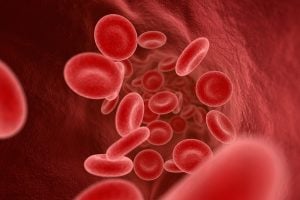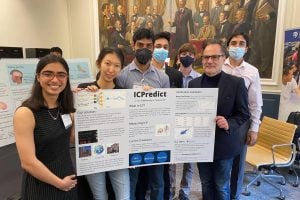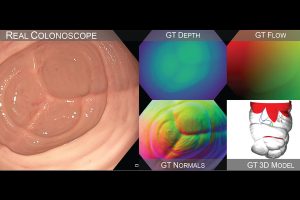Nicholas Durr is an associate professor of biomedical engineering. He holds secondary appointments in Ophthalmology and Electrical and Computer Engineering and is a faculty member in the Center for Bioengineering Innovation and Design (CBID).
Durr’s Computational Biophotonics Lab creates impactful technologies that improve diagnostics, reduce costs, and increase access to high-quality healthcare. The lab creates new optical technologies to reveal actionable clinical information. Durr and his team are particularly interested in computational biophotonics—creating new ways in which structured light can be used in combination with intelligent algorithms to probe and interpret the interaction of light with biological issues. By shaping and monitoring the spatial, temporal, spectral, and coherence properties of light as it interacts with tissues, they strive to extract physiological information that will improve diagnostics, guide treatments, monitor therapies, and ultimately enable impactful new medical devices. Their work incorporates concepts from optical engineering, light-tissue interaction, computer vision, machine learning, and bio-design.
Current projects include creating smart endoscopy technologies to improve colorectal cancer screening, researching microscopy techniques for non-invasive blood analysis, inventing tools to increase eye care accessibility, and developing imaging systems that are optimized for computer-aided detection of disease.
Durr co-founded PlenOptika, Inc., a Boston-based company that commercializes technologies that improve eye care accessibility worldwide. As the CEO of PlenOptika, he co-developed QuickSee—an inexpensive, handheld device that accurately prescribes eyeglasses with the push of a button. He also co-founded Kubanda Cryotherapy, Inc.
He has won numerous awards for his work, including a Johns Hopkins Capers and Marion McDonald Award for Excellence in Mentoring and Advising, a National Institutes of Health Trailblazer Award, and the NSF CAREER Award. Durr collaborates extensively with industry and start-up companies, including PlenOptika, Leuko Labs, Kubanda, Olympus, Under Armour, Boston Scientific, and Google. He serves on the committee for the National Inventors Hall of Fame, is the faculty mentor for MedHacks, and is an active mentor in Hopkins FLI Network for first-generation, limited-income students. He has served as guest editor for several Biomedical Optics Express feature issues, co-organizes Optica’s Biophotonics Congress, and is on the program committee for SPIE’s Conference on Computational Optical Imaging and Artificial Intelligence in Biomedical Sciences.
Durr received his bachelor’s degree in electrical engineering and computer science from the University of California, Berkeley, in 2003. He then earned his master’s and doctoral degrees in biomedical engineering from the University of Texas, Austin, in 2007 and 2010, respectively. After receiving his doctorate, Durr trained as a postdoctoral fellow at Harvard Medical School, and then as an M+Visión Medical Imaging and Innovation Fellow at the Massachusetts Institute of Technology. He served as CEO of PlenOptika from 2013 to 2015. He joined the faculty of the Whiting School of Engineering in 2016.



